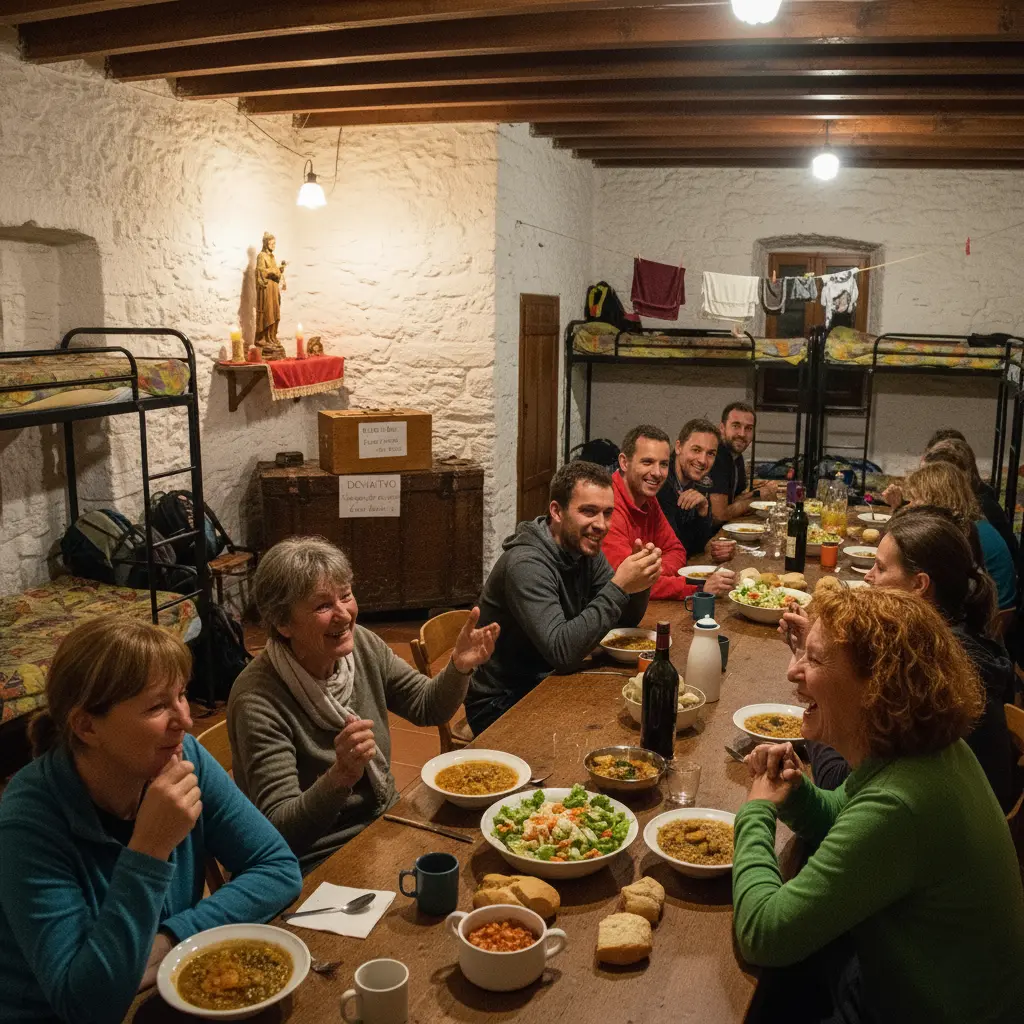The Camino de Santiago, known in English as the Way of St James, and the Via Francigena, which starts in Canterbury, crosses France and Switzerland, and leads to Rome, are beloved by slow travellers for their simple rhythm and strong sense of community. You walk, share meals, rest, and repeat, supported by a network of albergues and ospitali that keep the journey human and affordable. “St James” and “St Jacob” name the same apostle, Giacomo; different languages preserved different forms of the original name, which is why you’ll see Camino de Santiago in Spanish and Sankt Jakob in German, while modern English settles on St James.
“Ospitale” comes from Latin hospitāle, from hospitalis and hospes, a word that once named both host and guest. In the Middle Ages it described houses of welcome for pilgrims, the poor, and the sick, and it survives today in place names and in the spirit of simple hospitality along these routes.
A donativo is not a price but a contribution that keeps doors open for the next pilgrim. As a clear guide, give at least 10€ for a simple bed, 15€ or more when meals or laundry are included, and 30–35€ per person if you can, which is roughly what you’d spend elsewhere and helps cover those who cannot give as much. Donate per person, carry small bills, offer a hand if you’re short on cash, and respect fixed prices where they exist. Your generosity sustains the culture of care that makes these pilgrimages special.
Read the complete article 👇🏻
How much to give as a donativo on the Camino de Santiago or the Via Francigena ❓💰








